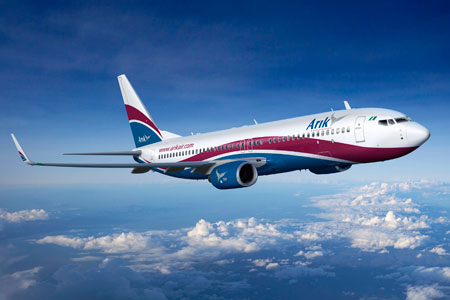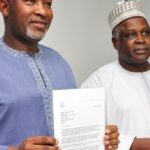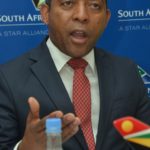
Many operators of Nigerian airlines are apprehensive about the national carrier, which the federal government wants to float by December this year.
Since 2016 when the Muhammadu Buhari administration muted the idea of establishing a national airline, it has received barrage of criticism from these investors who are obviously apprehensive about their investment when an airline with government input and support would start competing with theirs.
Industry analysts say the fear may not be unfounded because there is no guarantee that government would provide level playing ground for both the airlines owned by these entrepreneurs and the one that would be established by the federal government, despite the promises of equal opportunities.
That fear became exacerbated when these operators noticed that aviation agencies’chiefoperating officers have been included in the committee that would spearhead the actualisation of the new national airline. This has given rise to the question: after giving this new airline a head start, wont these government agencies also give it undue privileges at the expense of already existing airlines owned by private investors?
This fear is not unfounded, considering the history of national airlines in the world and in Africa. They are usually given privileges by government, which would not want the airline to fail. President of Airport Council International (ACI) World, Angela Gittens noted in a recent interview with THISDAY that “typically the national carrier is very inefficient because of the government subsidy and so it is more subject to governmental types of economics and not the market” so government tends to curb competition in order to allow the national airline to thrive.
Recently Airline Operators of Nigeria (AON) in a press conference expressed its apprehension about the national carrier and alleged that the federal government was using taxpayers’ money to fund the proposed national carrier that is supposed to be private sector driven, noting that with government commitment to the national carrier, it is evident that it would not give all airlines equal operating environment.
The Chairman of Nigeria’s largest carrier, Air Peace, Allen Onyema said that what the airlines want is a guarantee of a level playing ground from the government, exemption of airlines from paying Value Added Tax (VAT) and noted that if equal opportunities are given to all airlines in a competitive market he supports the national carrier.
“I support the national carrier because it will create jobs. Creation of jobs for our teeming youths is very important to me and that is the reason why I went into airline business.
“But government must have to guarantee that it will give equal opportunities to all operators. It is understandable why airline operators are worried. This is a capital intensive business and after investing hugely you would want to know what will happen to that business,” Onyema said.
THISDAY spoke to the Director General of the Nigerian Civil Aviation Authority (NCAA), Captain Muhtar Usman who noted that Nigeria is losing a lot in foreign exchange and in many other ways because it does not have a national carrier.
Usman said Nigeria is yet to benefit from the Bilateral Air Service Agreement (BASA) it signed with many countries because it does not have a national carrier or strong airlines that would take advantage of these agreements and provide corresponding international flight services with the foreign airlines that operate into Nigeria.

The NCAA Director General said that this would have earned Nigeria multibillion naira in foreign exchange, adding that the Nigerian market is big with huge potential in which Nigeria with its current aviation market is not privileged to fully exploit.
“We have lost a lot and we have been losing a lot by not taking advantage of those bilateral air service agreements because we don’t have strong, viable carriers that will be able to effectively compete with foreign airlines,” Usman said.
On the fears of the airlines over national carrier and the role being played by aviation CEO in the establishment of the national airline, Usman allayed the fears of AON and said that the purpose of the committee is to guide the activities of national carrier project to ensure that everything follows the standard and recommended practices as enshrined in the Nigerian civil aviation regulations and the International Civil Aviation Organisation (ICAO).
“The civil aviation authority is first to promote civil aviation activities in Nigeria. We give every operator equal opportunity. We have been providing and we will continue to provide that service irrespective of whether it is a national carrier or the airline is owned by private entrepreneur; as long as they are in line with the AOC given to them. We will continue to provide such service,” the Director General said.
He added that when the Nigeria Airways Limited was operating, there were other airlines operating alongside the national carrier like Okada Air, Kabo Air, ADC and they were all doing well and operating profitably.
THISDAY






